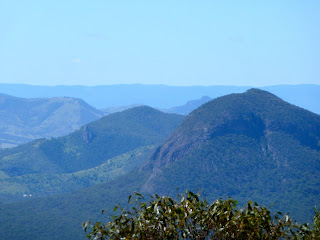Leichhardt was an obsessive man of science. All natural phenomena fascinated him, whether they were plants, animals, weather, rocks, landscapes or indigenous people. He tried his hand at medicine, navigation, surveying and animal husbandry. He kept detailed records, collected thousands of samples, discovered several important rivers and named many geographical features. He was easily distracted from his primary task or diverted from his intended course if a new specimen caught his eye.
In his time Leichhardt was greatly criticised for his bad planning, poor choice of expeditioners, lack of bushman skills and inadequate leadership. But in the end he was, and is, judged on his fanatical drive to make geographical sense of this harsh continent and his resilience in the face of impenetrable thorny scrub or dank dense forest; precipitous escarpments or serried ranges; arid plains or rivers in flood; hostile natives or recalcitrant companions.

I have yet to travel even into the deepest interior of Queensland on this visit to Australia, but I have scanned enough vistas to wonder how early pioneers must have felt as they ventured into what was for the most part an inhospitable if starkly beautiful environment. And to be the first European to set his sights upon such a monumental unknown must have been a daunting as well as exhilarating prospect.
I shall forever think of Leichhardt as I marvel.








No comments:
Post a Comment